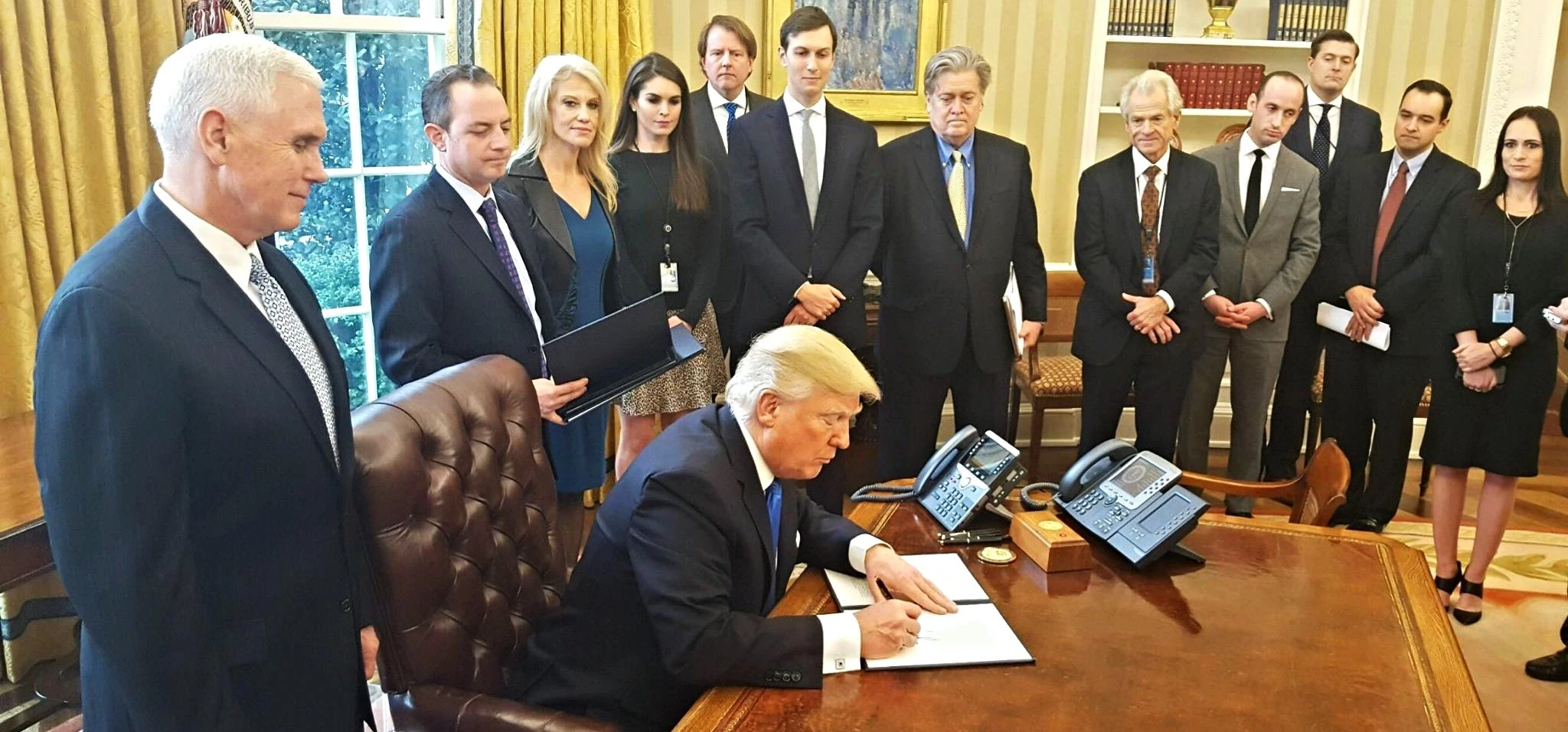
Partner Article
Why May must resist Brexit navel-gazing so that UK tech can benefit from Trumpian chaos
If you needed any more proof of the potentially catastrophic impact that immigration curbs can have on the technology sector you need only look at the list of household names attached as signatories to the legal brief challenging Donald Trump’s travel ban revealed on Monday.
Apple, Google, Intel, Ebay, Twitter amongst nearly 100 other companies have all registered their disapproval of Trump’s controversial order placing a 90 day travel ban from seven Muslim-majority countries, highlighting how reliant they are on ready access to the world’s best talent.
According to Google’s Chief Executive, Sundar Pichai, over 200 of its employees have been impacted by the ban, putting a real, quantifiable figure on the order which has unleashed chaos at US airports.
However, the impact on America’s image as a free and open society may be even greater, and harder to quantify and it is here where the UK stands to benefit.
We have seen already that US tech giants have been relatively unperturbed by the impending Brexit negotiations, so confident that London will remain a tech hub outside of the European Union that the likes of Google, Apple and Facebook have all committed to larger footprints and increased headcounts across the capital.
Continued travel bans and stricter immigration curbs across the Atlantic could logically result in far more US tech giants transplanting some of their business critical functions in the UK, benefitting from a wider foreign talent pool and comparatively lax immigration controls.
Our homegrown tech companies also stand to benefit, allowing them to challenge for the top talent spurned or even dissuaded by the Republican government’s increasingly hardline stance on immigration provided, of course, that Theresa May resists following a similar hardline stance herself.
A common interpretation of last June’s EU referendum was that it served as a rejection of the global status quo by an electorate disillusioned by the benefits of immigrant workers and globalisation.
In this context, the government’s Brexit negotiations have been framed, not just in a European light, but a global one too, with expectations from many leave voters that the result will harbour a new era of strict immigration curbs and controls.
However, with 156,000 non-EU workers currently working in the high-tech digital industry, a figure which is rising by 3.6% every year, to follow such a path would not only be foolish, but completely suicidal considering the current opportunities the uncertainty in America has opened up.
If the government can resist Brexit-induced navel-gazing in the coming months, the capital, and the UK’s tech sector as a whole, could prove to be the chief beneficiary from the Trumpian chaos currently engulfing America.
Looking to promote your product/service to SME businesses in your region? Find out how Bdaily can help →
Enjoy the read? Get Bdaily delivered.
Sign up to receive our popular morning London email for free.








 £100,000 milestone drives forward STEM work
£100,000 milestone drives forward STEM work
 Restoring confidence for the economic road ahead
Restoring confidence for the economic road ahead
 Ready to scale? Buy-and-build offers opportunity
Ready to scale? Buy-and-build offers opportunity
 When will our regional economy grow?
When will our regional economy grow?
 Creating a thriving North East construction sector
Creating a thriving North East construction sector
 Why investors are still backing the North East
Why investors are still backing the North East
 Time to stop risking Britain’s family businesses
Time to stop risking Britain’s family businesses
 A year of growth, collaboration and impact
A year of growth, collaboration and impact
 2000 reasons for North East business positivity
2000 reasons for North East business positivity
 How to make your growth strategy deliver in 2026
How to make your growth strategy deliver in 2026
 Powering a new wave of regional screen indies
Powering a new wave of regional screen indies
 A new year and a new outlook for property scene
A new year and a new outlook for property scene